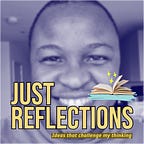Before my wife traveled to Zimbabwe recently, we sat at the dinner table one night chatting, and she said she felt some type of way about going home. Not dread exactly. Not simple excitement either. Something more tangled. Love and distance sitting next to each other, both equally true, both equally present.
I understood exactly what she meant. That mix of longing and apprehension. Wanting to go and wanting to have already left. Missing home while wanting to keep the distance.
We talked for a long time that evening, circling around something we both knew but struggled to name. The conversation kept returning to the same uncomfortable truth: home doesn’t feel the same anymore. Not really. Not in the way we used to fit there, effortlessly, without thinking about it.
We love the place we come from: Bulawayo. I miss it in ways that surprise me, in the middle of ordinary days when I’m doing something completely unrelated and suddenly the longing hits like a physical thing in my chest. But loving a place and fitting in it aren’t the same thing. We’re learning that the hard way.
Maybe you know this feeling too. That pull toward home that sits alongside a quiet dread. The way you count down to a visit with genuine excitement and genuine anxiety living in the same breath. The strange guilt of missing a place while simultaneously knowing you can’t stay there long. If you’ve felt this, if you’ve tried to explain it to someone and watched your words fail to capture the complexity, this is for you. Not to fix the tension but to name it. To give you language for what you already know inside but can’t quite say out loud.
I love reading fantasy. Right now I’m working through The Wheel of Time by Robert Jordan. It’s a long series. Fourteen books. Epic in every sense of the word. While on a walk yesterday, I finished Book Five (I was listening to the audiobook) and as I was reflecting on what I had just experienced, that conversation with my wife came back to me and wouldn’t leave because I’d found something that explains the feelings we were having.
The story of the Wheel of Time follows a group of young people from a farming region called the Two Rivers. Small, quiet place. Everyone knows everyone. But they’re forced to leave the Two Rivers to go on an epic adventure. One of them, Rand, discovers he’s the prophesied Dragon Reborn. By Book Five, he’s learned to channel immense power that could level cities if he loses control. He’s seen wonders and horrors that no one from the Two Rivers could imagine. He’s made choices that ripple across nations, decisions that affect the lives of thousands of people he’ll never meet. He carries the weight of the world now. Literally.
As I reflected on the ending of book five, the thought that was stuck on my mind is that there’s no way Rand could go back to the Two Rivers and fit in anymore. He’s become too big for it. The shape of his life has changed so fundamentally that the old mould can’t hold him anymore.
While I haven’t quite gone on an epic adventure of world-changing proportions, I know that feeling. I live in it.
There’s a saying in isiNdebele. ‘Ukuhamba kuzal’ inkosi,’ which translates to ‘Traveling gives birth to kings.’ When I was a boy, I thought it meant wealth and status. Kings as men with big houses and German cars that never break down and people who never stand in line at the bank. Now I know it means something quieter and heavier and harder to explain to someone who hasn’t felt it. Travel enlarges you. It stretches the borders of who you are and what you can see and how you understand the world. And once you expand like that, you can’t shrink back to your old size. Not without incurring a cost, anyway. The box that used to hold you comfortably now feels too small.
Bulawayo raised me well. The city gave me a lot I needed to become who I am. It was a good childhood. A happy one. I have many fond memories.
During the week after school, I rode bikes with friends. We were a small gang of boys, and we ruled our little corner of the world with the absolute certainty of children who don’t know yet how small their kingdom is. We wandered the suburbs exploring. Down streets we weren’t supposed to go down. Into yards we weren’t supposed to enter. We walked kilometers and kilometers without thinking about it, without getting tired, just moving for the sake of moving and seeing what was around the next corner.
Then we had to rush back to be home by six. That was the rule. Six o’clock before parents returned from work. We came back with dust up to our knees. Thick white dust that got into everything. You had to wash your legs before getting into the house. Rinse off all that evidence of your adventures before you were allowed to sit on the sofas or walk on the clean floors.
If I was hanging out at a friend’s house around mealtime, I’d be counted in automatically. No one asked if you’d eaten or if you were hungry. You were there so you were fed. The same isitshwala and mbida at every table, part of the shared life.
Back then, every adult was your parent. In theory and in practice. If you were doing something you shouldn’t be doing, any adult could correct you, and you accepted it because that was just how things worked. You knew all your neighbors. Not just their names but their business, their struggles, their joys.
It was a small world. Homogeneous in ways I didn’t realise then. We were all black. Almost all Ndebele. We all went to the same types of schools and the same types of churches. Our parents were teachers or nurses or clerks or government workers. Solid middle class or aspiring to it. We had the same references, the same jokes, the same understanding of how the world worked. Everyone fit the same basic mold with only minor variations.
But it was the whole world. It was all I knew, and all I needed to know. The edges of that world felt far away, theoretical, not something I’d ever actually reach.
Then I left.
School finished. I worked for a few years. Opportunities appeared. I went to South Africa first. Then eventually moved to London. Each move feeling necessary at the time, practical, the obvious next step.
But those moves weren’t just geographic. They weren’t just about changing addresses or learning new streets. They changed something fundamental to how I saw the world and my place in it.
South Africa was the first crack in the homogeneity. Suddenly I was surrounded by people who weren’t like me. They spoke different languages, practiced different religions, came from different economic realities entirely. I met some who grew up so poor that my middle-class Bulawayo childhood looked like luxury to them. I met others who grew up so wealthy they genuinely didn’t understand what it meant to worry about money.
I remember the first time I met someone who’d never been to church, who hadn’t grown up with any religion at all. It broke something in my brain in a necessary way. In Bulawayo, you could assume everyone was Christian. Even people who didn’t go to church regularly, even people who weren’t particularly devout, still operated within a Christian framework. They knew the stories, the references, the basic moral architecture. But here was someone who didn’t. Who saw the world through a completely different lens. Who’d built their ethics and their understanding of meaning from completely different materials.
And there were people. A whole community of people who became our people for that season. We found a group of friends in South Africa who felt like our tribe. Like the kind of connection that happens once in a lifetime and surely lasts forever. We took trips together. Long road trips filled with singing and food and getting lost, but it didn’t matter because getting lost was part of the adventure. We sang together at different churches, our voices finding harmonies that felt like something bigger than any of us individually. Sunday afternoons that stretched into evenings, having a braai at someone’s house, talking about everything and nothing.
It felt permanent. That’s something you come to discover about these seasons. They feel permanent while you’re in them. You can’t imagine a version of your life where these people aren’t central to it. This is our community. These are our people. This beautiful thing we’ve built together, it’s going to last.
It didn’t.
When we visit South Africa now, we sometimes see them. The friends from that season. We meet for coffee or dinner, and the warmth is real. The love is still there. But something has shifted. They’ve moved on to new things, new communities, new versions of themselves. We have too. We talk about the old days with affection and nostalgia, but we can’t recreate them. Those people still exist, but that community doesn’t. It served its purpose for that time and then it dissolved, the way morning mist dissolves when the sun gets high enough.
That dissolution used to hurt more than it does now. The first time I really felt a community come apart, I fought it. I thought if we just tried harder, stayed more connected, made more effort, we could keep it alive. But communities aren’t just about effort. They’re about season and proximity and shared purpose and a thousand other factors that shift whether you want them to or not. Some relationships endure beyond the community. Those ones you carry with you, fold into the next chapter, hold on to across distance and time. But the community itself, that specific configuration of people in that specific place at that specific time, it has a lifespan.
Then London.
London has been something else entirely. A city so large and so diverse that you could live here for years and still only scratch the surface of it. On the Tube, you could hear ten different languages from five different countries between Baker Street and Paddington. At work, I collaborate with people from every continent, every background you can imagine. People who pray five times a day. People who have never prayed in their lives. People whose parents own businesses that span countries. People whose childhoods included winters that got to -40 degrees Celsius.
Each of these encounters did something to me. Stretched me. Challenged assumptions I didn’t know I was making. Showed me that the way I grew up wasn’t the only way, wasn’t the default, was just one option among infinite possibilities.
And once you see that, once you really internalize it, you can’t go back to thinking your small corner is the whole world. The box expands. The borders move. You become larger than you were.
And here too, in London, we found people. Different people. A new community. We’re part of something now that feels good and right and like it might last forever. Except we’ve been here before. We know how this goes. We can feel it already, the subtle shift. Not everyone at the same pace. Some people moving toward different things. The community is still beautiful, still real, but we’re not at the apex anymore. We’re on the other side of the hill. The slow, inevitable drift has begun. Now I’m learning to hold these dissolutions with more grace. To honor what was without demanding it last forever. To let the community be beautiful for its season and then let it go when the season ends. To trust that the next place will have its own people, its own version of belonging, its own sweet spot before it too shifts into something else.
When I visit Bulawayo now, I aim for a sweet spot. Two weeks maximum.
Week one is pure delight. Landing at the airport and stepping out into that heat that hits you like a wall. The heat in London is never like that. It’s never this specific, this thick, this full of dust and sun and something else I can’t name but would recognize anywhere. The air smells different. Feels different on your skin.
People light up when they see you. Literally, like you’re returning from war. Someone will say you look darker or lighter depending on their mood and the light. Someone will inspect you closely and declare you’ve gained weight or lost weight, both said with the same mix of concern and approval.
You greet everyone. That’s important. You have to get it right, or the elders will talk about how you’ve lost your manners overseas.
The first morning you wake up early. Not because you set an alarm but because your body hasn’t adjusted to the time and also because the sounds are different. Birds are singing in the trees at five in the morning. A rooster somewhere in the distance, because even in the city people rear their own chickens. The neighborhood waking up with its own particular rhythm.
You take the long way to buy bread. You don’t need to, but you do it anyway because you want to pass that corner where you used to meet up. You want to see if the tree’s still there, if the wall still has that crack in it, if the world has stayed the same in your absence. Mostly it has.
Friends come by. Friends you haven’t seen in years but who fall back into conversation with you like no time has passed. You laugh from the belly about stupid things you did as kids. Remember that time when. Remember when we. The stories get better each time you tell them, embellished with time and distance and affection.
For those first few days, it’s all warmth. All belonging. You fit into the spaces you left behind like a hand sliding into a familiar glove. You belong to this place, and this place belongs to you. You could live here again. Of course, you could. How did you ever leave?
Week two rolls in. There’s no clear boundary, no moment when you can point and say here, this is where it shifted. It creeps in at the edges.
At first, it’s just a small tug. A quiet discomfort you can’t quite name. The streets feel narrower somehow. Conversations start to loop back on themselves. The government, and power cuts, and the same stories about the same old people making the same choices. You’ve heard these stories before. You’ll hear them again tomorrow.
You still love the food. The braai meat, isitshwala, the texture of it in your fingers, the way it fills you differently than anything you eat in London. Smoke in your eyes. It’s perfect. It’s home.
But by midweek, something else is present too. You can feel the box. The box has walls. The walls are closer than they used to be. Topics you can’t discuss because they’re too far outside the shared frame of reference. Questions you don’t ask because you know the answer will just confirm the gap. You start to notice all the ways you’ve changed and they haven’t, or they’ve changed and you haven’t, or you’ve both changed but in different directions and now you’re standing on opposite sides of a distance that love can’t fully bridge.
You start counting days. Six more. Five more. By the weekend, the sweetness is gone entirely. If you stay longer, nostalgia curdles into something else. Ache. Then impatience. Then a version of yourself you don’t like. Complaining about everything. Feeling trapped in a place you’re choosing to be.
I’ve learned to leave before I sour. Before I start resenting the place I love. Before the people who love me start to see that restless part of me that can’t settle.
This is the pattern we’ve learned. Most times when that longing for home hits us, we go as far as South Africa instead of all the way to Zimbabwe. Not to meet family necessarily. That’s not the main driver. We go to satisfy the ache without fully committing. To dip our toes in the water of home without diving all the way in.
Because South Africa occupies this interesting middle space for us. It was the first place that loosened the homogeneity we grew up with. The first place where difference sat next to you on the taxi without anyone making a scene about it. People from everywhere. Accents from all over the continent and beyond stacking on top of each other. The people at the mall looking like a map of the world. Languages switching mid-sentence. Different ways of being existing side by side.
It’s bigger than Bulawayo. It breathes. It has room for multiplicity, for variation, for people who don’t fit the standard mold. We can taste home there, catch the flavor of it in the accents and the food and the mannerisms, without feeling the walls close in quite as fast. We can last longer. Three weeks. Sometimes a month. Before the sweet spot ends and the confinement begins again.
This is the part I struggle to explain to people back home. From their perspective, it can look like pride. Like we think we’re better because we live overseas now. You think you’re too good for us. That’s the unspoken accusation, sometimes the spoken one.
But it’s not that. I wish it were that simple because then I could just correct my attitude and everything would be fine. It’s not about better or worse. It’s about geometry. About shape and fit. The shape of my life has changed. The container that used to hold it comfortably can’t hold it anymore. Not because the container is bad or small or insufficient. Because I’m different. I’ve been poured into a larger mold and set there, and now I’ve hardened into a new shape.
How do you explain that to someone who hasn’t experienced it? There’s a song by Sara Groves called “Painting Pictures of Egypt.” She sings:
“And the places I long for the most are the places where I’ve been.
They are calling out to me like a long-lost friend.”
I feel that deeply. The places I long for most are the places where I’ve been. Bulawayo calls to me. South Africa calls to me. Not as they are now but as they were when I fit in them, when I belonged without question. Not just the places but the people. The communities that formed and felt permanent and then dissolved like they were never supposed to last at all.
The song goes on:
“And I want to go back, but the places they used to fit me cannot hold the things I’ve learned.”
And there it is. The whole ache in two lines. I want to go back. The longing is real and deep and constant. But the places that used to fit me can’t hold the things I’ve learned. Can’t contain what I’ve seen. Can’t accommodate who I’ve become. And the communities that once held me can’t reform because we’ve all become different shapes, traveling different roads, even if we still carry affection for what we once had together.
And then this line, the one that really gets me:
“I am caught between the promise and the things I know.”
Between the past and what’s coming. Between what was and what might be. Between the comfort of the known and the pull of the unknown. Between the place I came from and the person I’m becoming. Between the communities that were and the ones that might yet be.
That’s where I live now. In that caught-between space.
London is not home. Not yet. Maybe not ever in the way Bulawayo was home when I was a boy, and home meant the place where you belonged without having to think about it.
Some days it feels like it might become home. Days when the city reveals some new corner, some unexpected beauty. Other days, it feels completely foreign. Like you’re an actor playing a role, always slightly outside yourself.
I have small rituals that stitch a sense of belonging in it. A particular bench in a park where the light falls a certain way in the afternoon and I sit and listen to my book. The Turkish restaurant where I order the same thing every time. A church where the singing rises in a way that feels like worship, even if it’s not the four-part harmony I’m used to.
So, I pack Bulawayo into my pockets and carry it with me. A proverb that surfaces when I need it. A recipe I recreate in a kitchen thousands of miles away that never quite tastes right, but it’s close enough. The cadence that returns to my voice when I’m tired, the way I spoke when I was young, slipping through. I carry South Africa in my stride. That wider breath, that willingness to occupy space without apologizing. And I carry the people from there who still reach across distance, who check in, who remember. Not the whole community, but the threads that endured.
I’m learning to be in many places at once without being torn apart by it. To hold multiple identities without having them collapse. To accept that communities form and dissolve and that’s not failure, that’s just the rhythm of a life lived across many places. It’s exhausting. The constant negotiation, the code-switching, always standing at the border between worlds. Always saying goodbye to communities that felt permanent, always starting over with new people, always carrying the grief of what dissolved and the hope that this next thing might last. But it’s also rich. I see things people who’ve only lived in one place can’t see. I understand multiplicity in a way that only comes from living it.
Frodo saves the Shire in The Lord of the Rings. He endures everything to protect it, to make it possible for hobbits to keep living their simple comfortable lives. He succeeds. He returns. The Shire is saved.
But he can’t live there anymore. The hearth is warm, but he feels cold in a way that no fire can touch. His friends celebrate and feast and marry and settle into peace, and he can’t join them. Not really. He can be physically present, but he’s not there the way he used to be there. The journey has marked him too deeply. It has changed him in ways that can’t be undone.
So eventually he leaves. Gets on a ship and sails away to a place where the changed and the marked and the unbelonging go. It’s not defeat exactly. It’s just honesty. An acknowledgment that some transformations are irreversible.
I think about that a lot. About irreversible transformations. About the ways we save the places we love by becoming people who can no longer fully inhabit them. About how we form communities that feel eternal and then watch them dissolve, not because anyone did anything wrong but because that’s what communities do when the season changes.
This hits especially close to home for so many people I know. My friends who left Zimbabwe. My friends here in London. Most of us didn’t leave for adventure or curiosity. We left for survival. For opportunity. To earn enough to support families back home. To pay the black tax. The responsibility to send money home.
But here’s the cruel irony: the places that pay you enough to save home are the same places that change you so fundamentally you can’t fit back home anymore. You see different ways of life, meet people with different values, and form new reference points. Your frame of reference expands. Your assumptions shift. The way you think about time, about work, about what’s possible - it all changes. Until one day you go back and realise you can no longer inhabit the place you’re saving.
The tax isn’t just the money you send back. It’s the piece of belonging you trade away to earn that money. You can’t have both.
If traveling makes kings, it also makes exiles. That’s the part the proverb doesn’t say out loud, but it’s there in the subtext if you know how to look.
The crown is vision. The ability to see farther, to connect dots across greater distances, to understand complexity and multiplicity and nuance. That’s the gift. That’s what you gain.
The exile is the cost. You belong less easily. Home becomes complicated. The borders that used to feel solid and protecting now feel like walls that are too close, too rigid, too confining. Communities that felt permanent reveal themselves to be temporary. Relationships that seemed unshakeable shift when distance enters the equation. You can’t unknow what you know. You can’t unsee what you’ve seen. You can’t shrink back down to fit in the space that used to hold you perfectly.
That’s freedom in one sense. You’re not limited to one way of being, one way of seeing. The world is larger for you than it is for people who never left. It’s also grief. Deep and ongoing grief for the simpler version of yourself who fit so neatly, for the belonging you can never quite reclaim, for the communities that dissolved, leaving only the sweetness of memory.
I’m learning to let the freedom expand me and let the grief soften me and somehow keep both happening at the same time. It’s not easy. Some days I do it better than others.
I don’t aim to fit perfectly anywhere now. I think I’m done with that as a goal.
Could I go back if I had to? Yes. Humans are adaptable. Some people I know found middle grounds I didn’t - stayed closer to home while still expanding, or settled in nearer countries where the distance isn’t quite so far. Given enough time and necessity, I could reform myself to fit the old mould. But I’d have to make myself smaller. I’d have to let go of all those other places I’ve seen, those other ways of being or carry them silently, never speaking about them, living in permanent longing. Before circumstances force me to shrink back down, I’m choosing to honor the new shape I’ve become. To carry multiple homes instead of fitting completely in one.
Perfection was an illusion anyway. It only felt perfect because my world was small enough that I couldn’t see beyond its edges.
Now I want something different. I want to carry this expanded world faithfully. To let it make me kinder because I’ve met people unlike me and learned they’re still deserving of dignity. To make me more curious because every person might have a completely different map of reality. To make me less certain that my way is the only road. I want to keep space at my table for someone whose map looks nothing like mine, whose journey led them to conclusions I don’t understand. To listen more than I defend.
I want to honor the communities that form without demanding they last forever. To leave before I sour and return before I forget. To know my limits and respect them.
Home is not a single address for me anymore. It’s not a dot on a map. It’s a constellation. Multiple points spread across distance, all connected by invisible lines, all part of the same larger map.
Bulawayo lives in me, the dust on my legs after a long walk, kombis rattling past with bass thumping from speakers bigger than they should have, that comfortable embrace of familiarity. South Africa taught me difference doesn’t have to mean distance, that multiplicity is just reality when you zoom out far enough, that beautiful communities can form and then end and that’s fine. London is teaching me to be many things at once without apologizing, to build home from scratch in a place that doesn’t know my childhood and forces me to be myself in the present tense. To start over again, with new people in a new place, knowing it might not last but showing up anyway.
The constellation moves when I move. I carry it with me. Every place where I’ve stopped long enough to become a slightly different version of myself. Every person who walked alongside me for a time. Places and people. Enduring connections rather than permanent communities. Many ways of belonging rather than one.
The work is simple in concept, difficult in execution. One star at a time. One small ritual. One phone call. One visit before I sour. One return before I forget. One season with people who matter. One graceful goodbye when the season ends.
That’s the work I’m learning. And if you’re reading this, maybe it’s your work too. Find your sweet spot. Honor it. Respect it. Return before you forget. Leave before you sour.
And know that you’re not alone in this strange expanded world. Some of us are walking this too. Carrying constellations. Learning to belong partially in many places rather than completely in one. Building homes that move when we move.










